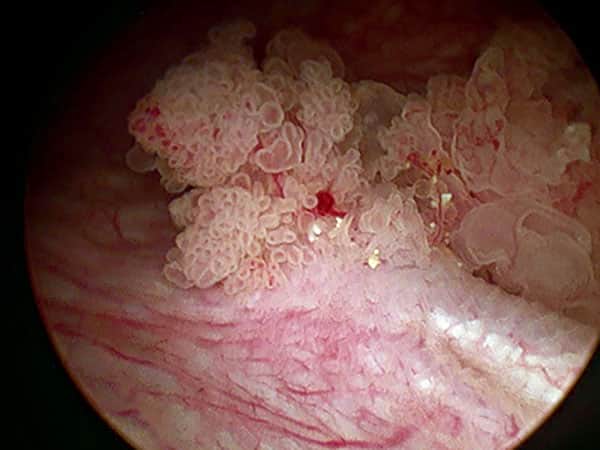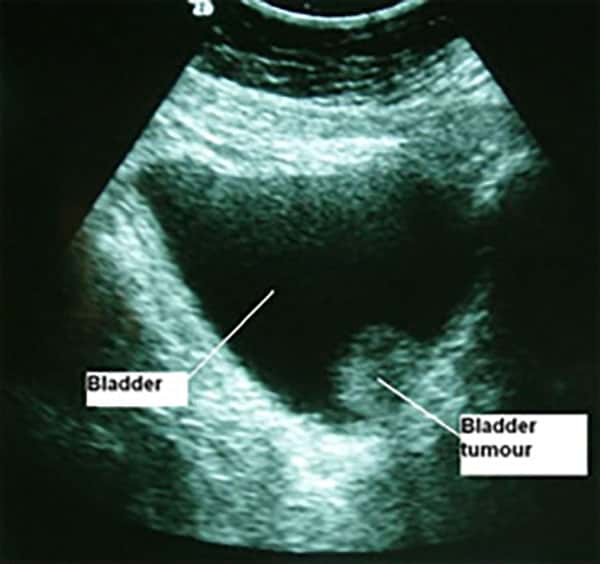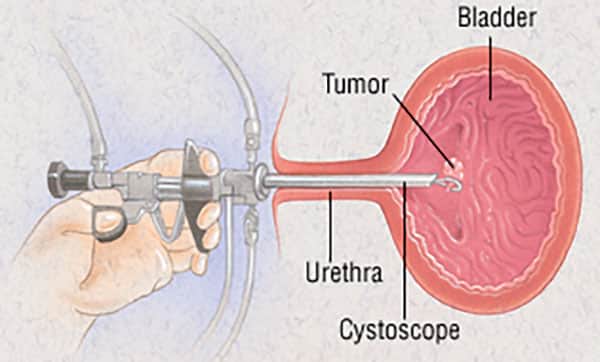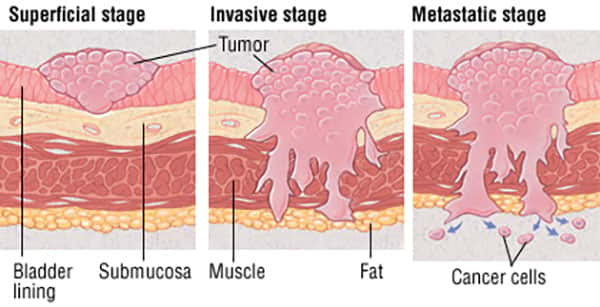What is a Bladder Tumour?

A bladder tumour is a type of cancer that begins in your bladder — a balloon-shaped organ in your pelvic area that stores urine. Bladder cancer begins most often in the cells that line the inside of the bladder. Bladder cancer typically affects older adults, though it can occur at any age.
The great majority of bladder cancers are diagnosed at an early stage — when bladder cancer is highly treatable. However, even early-stage bladder cancer is likely to recur. For this reason, bladder cancer survivors often undergo follow-up tests to look for bladder cancer recurrence for years after treatment.
Symptoms and Diagnosis


The most common symptom of bladder cancer is blood in the urine (haematuria), which usually occurs suddenly and is generally not painful.
Other less common symptoms include:
- Problems emptying the bladder.
- A burning feeling when passing urine.
- Need to pass urine often.
Tests used to diagnose bladder cancer include:
- Urine test.
- Blood test.
- Ultrasound or CT scan.
- Cystoscopy and biopsy.
Causes
The exact causes of bladder cancer are not known, however factors that put some people at higher risk are:
- Smoking cigarettes.
- Workplace exposure to certain chemicals used in dyeing in the textile, petrochemical and rubber industries.
- Use of the chemotherapy drug cyclophosphamide (which can increase the long-term risk of bladder cancer).
- Chronic inflammation of the bladder has been linked to squamous cell carcinoma of the bladder.
- Radiation used to treat other pelvic cancers.
- Regular use of some anti-inflammatory medication e.g. Phenacetin.
Prevention
Not smoking or quitting smoking, and avoiding exposure to chemicals listed above.
Treatment

Superficial bladder cancers which only involve the inner lining of the bladder are treated with surgery (transurethral resection) and/or immunotherapy, or sometimes chemotherapy instilled into the bladder.
Invasive bladder cancers are most commonly treated with surgical removal of the bladder, which may necessitate the formation of as stoma, or a new bladder using part of the bowel.

If surgery is not an option, the cancer may be treated with radiotherapy, with or without chemotherapy, or chemotherapy alone (platinum and gemcitabine).
Follow Up
Patients who develop bladder cancer will require long term follow up with regular telescopic inspection of the bladder (check cystoscopy), due to the risk of recurrence.
